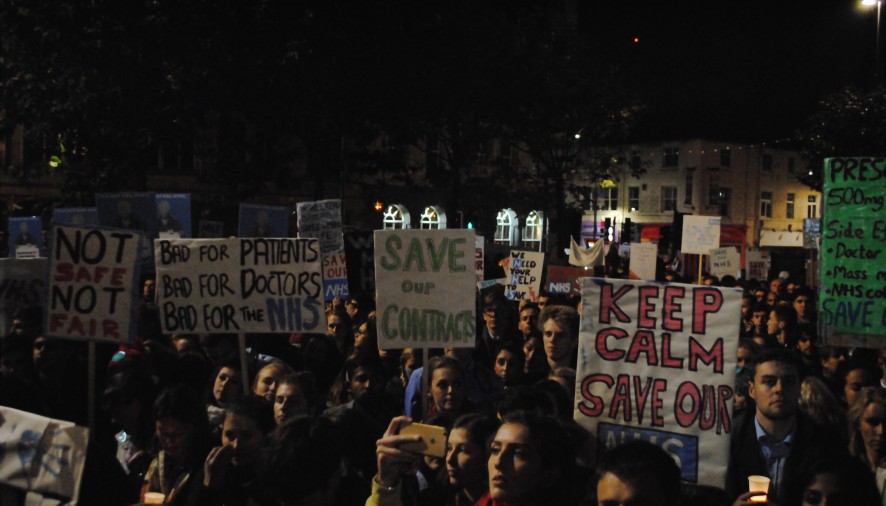Wednesday night saw thousands of Junior Doctors, medical students, other allied health professionals and supporters descend upon Victoria Square in Leeds City Centre to protest against the proposed changes to the Junior Doctors’ contracts.
The demonstration focused on doctors’ two main concerns with the changes, namely that the new contract will make health care unsafe by stretching resources and potentially putting patients at risk.
Secondly, the changes are unfair and will damage morale of junior doctors and medical students.
Jennifer, a third year medical student at Leeds University, expressed how “everyone at the protest was so unbelievably passionate about the NHS and providing the best care for their patients – it was overwhelming.”
Jennifer also believed that the intended changes could “jeopardise the quality of the care patients receive”, as well as “demotivating” and “devaluing” junior doctors.
Speakers from the demonstration included Harry Leslie Smith, a British writer and political commentator who is an avid support of the NHS, Alistair Hall, Professor of Cardiology at Leeds, and Dr Johann Malawana, the Chair of BMA Junior Doctor Committee
The line up also included a musical performance from junior doctors currently based at the LGI.
In a rousing speech, Harry Leslie Smith stated that “all citizens are worth care and compassion” and that “the NHS, Britain’s greatest achievement, is as essential to our nation’s wellbeing, as our armed forces are to protect us from threats.”
The contract dispute regarding changes to the junior doctors’ contracts dates back to 2012, where changes to the contracts of the 53,000 English junior doctors was first suggested.
The proposals of introducing a 7-day NHS, as well as alterations to working hours that are determined ‘unsociable’, were among the main issues addressed by the protestors on Wednesday evening.
At the moment hours which are deemed ‘sociable’ and thus receive a normal rate of pay are from 7am to 7pm Monday to Friday.
However, Jeremy Hunt’s proposed changes would increase this to 7am to 10pm Monday to Saturday, resulting in the number of working hours classified as ‘normal’ to be increased by 50%.
The BMA has suggested that earnings could fall by 15% for some, and whilst NHS employers have said that basic pay will be increased, there has not been a full disclosure on what this will entail.
The government intend to impose this new contract in England in 2016.
(Image courtesy of Tammi Nowell)
Alice Handy

